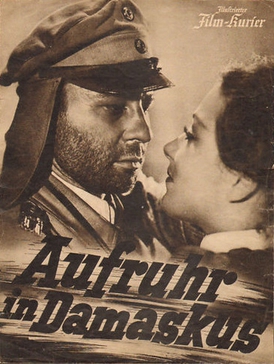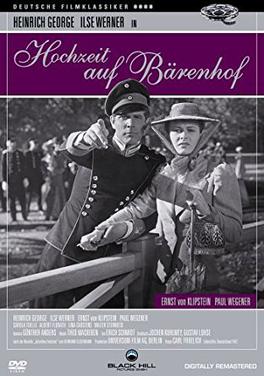
Heinrich Wilhelm "Heinz" Rühmann was a German film actor who appeared in over 100 films between 1926 and 1993. He is one of the most famous and popular German actors of the 20th century, and is considered a German film legend. Rühmann is best known for playing the part of a comic ordinary citizen in film comedies such as Three from the Filling Station and The Punch Bowl. During his later years, he was also a respected character actor in films such as The Captain from Köpenick and It Happened in Broad Daylight. His only English-speaking movie was the 1965 Ship of Fools.

Germany was the host nation and top medal recipient at the 1936 Summer Olympics in Berlin. 433 competitors, 389 men and 44 women, took part in 143 events in 22 sports.

The Liebig Medal was established by the Association of German Chemists in 1903 to celebrate the centenary of Justus von Liebig. Since 1946 it has been awarded by the Society of German Chemists.

The Berliner Kunstpreis, officially Großer Berliner Kunstpreis, is a prize for the arts by the City of Berlin. It was first awarded in 1948 in several fields of art. Since 1971, it has been awarded by the Academy of Arts on behalf of the Senate of Berlin. Annually one of its six sections, fine arts, architecture, music, literature, performing arts and film and media arts, gives the great prize, endowed with €15,000, whereas the other five sections annually award prizes endowed with €5,000.
5 June is a 1942 German war film directed by Fritz Kirchhoff and starring Carl Raddatz, Joachim Brennecke and Karl Ludwig Diehl. The film depicts the events of 1940 when German forces successfully invaded France. It was shot on location in France and Germany. Constant changes to the film, often at the request of the German military, led to large cost overruns. In November 1942, the film was banned by the Minister of Public Enlightenment and Propaganda Joseph Goebbels for unspecified reasons. It has been speculated that Goebbels thought the film was not entertaining enough or wished to avoid offending the Vichy government of France.

Uproar in Damascus is a 1939 German thriller film directed by Gustav Ucicky and starring Brigitte Horney, Joachim Gottschalk and Hans Nielsen. It is set during the First World War with German troops battling the Arab Revolt led by Lawrence of Arabia and the British. The film was officially honored as "artistically valuable" and having "special political value".
Ernst von Klipstein was a German film and television actor. von Klipstein became a prominent actor during the Nazi era, appearing in a large number of action films.

The Swedish Nightingale is a 1941 German musical film directed by Peter Paul Brauer and starring Ilse Werner, Karl Ludwig Diehl, and Joachim Gottschalk. The film is based on a play by Friedrich Forster-Burggraf set in nineteenth century Copenhagen. It portrays a romance between the writer Hans Christian Andersen and the opera singer Jenny Lind, the "Swedish Nightingale" of the title.

The Muzzle is a 1958 West German comedy film directed by Wolfgang Staudte and starring O.E. Hasse, Hertha Feiler and Hansjörg Felmy. It is a remake of the 1938 film of the same title.

Wedding in Barenhof is a 1942 German historical comedy film directed by Carl Froelich and starring Heinrich George, Paul Wegener and Ilse Werner.

Vienna, City of My Dreams is a 1957 Austrian musical comedy film directed by Willi Forst and starring Adrian Hoven, Erika Remberg and Hertha Feiler.

My Schoolfriend is a 1960 German comedy drama film directed by Robert Siodmak and starring Heinz Rühmann, Loni von Friedl, and Hertha Feiler. It is based on the eponymous play Der Schulfreund by Johannes Mario Simmel.

Tell the Truth is a 1946 German comedy film directed by Helmut Weiss and starring Gustav Fröhlich, Mady Rahl, and Ingeborg von Kusserow. The film had a troubled production, and was originally filming in the final days of the Nazi era with Heinz Rühmann and his wife Hertha Feiler in the lead roles. Production was halted when Soviet forces took control of the Tempelhof Studios during the Battle of Berlin. The film was then remade in the British sector of Berlin with different leads but using substantial amounts of footage already shot during the previous production.

Men Are That Way is a 1939 German drama film directed by Arthur Maria Rabenalt and starring Hertha Feiler, Hans Söhnker and Hans Olden. The film's sets were designed by the art director Willi Herrmann. It was remade by Rabenalt in Austria as Arena of Fear (1959).

The Saint and Her Fool is a 1957 Austrian drama film directed by Gustav Ucicky and starring Gerhard Riedmann, Gudula Blau and Hertha Feiler.













